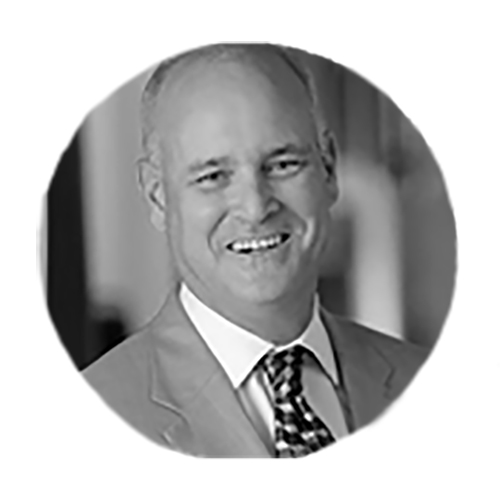Four Habits of Highly Successful Advisors: Part One



My colleague Ryan Krystopowicz and I recently co-wrote a white paper “think piece” entitled, “Four Habits of Highly Successful Advisors.”1 Over the course of a four-part blog series, we will break down that longer white paper into shorter chunks, focusing on a different habit in each post. For the first installment, we look into habit number one: focus on value.
The wealth management industry is in a constant state of evolution, and the next five to seven years will see a pace of change that will make Moore’s Law proud.2
As a starting point to address taking advantage of this accelerating change, it is worthwhile examining some of the trends within the wealth management industry since the global financial crisis and the Covid Era.
At a macro level, one tectonic shift facing advisors is that the growth and evolution of disintermediated information, social media and online “advice” continues to be a disruptive force on the wealth management industry. The next generation of investors is technologically savvy, more collaborative, less trusting of tradition and more socially conscious.
Other trends include:
- End clients view professional investment management as table stakes—it is viewed increasingly as a commodity
- End clients are more cost/value/tax sensitive
- End clients increasingly are interested in and open to more non-traditional investment approaches and solutions
- Advisors seek to build enterprise value in their firms through scale and efficiency
- Advisors want to deliver institutional-quality investment portfolios while being able to focus on holistic wealth management advice—the services end clients increasingly are willing to pay for
- Advisors increasingly are open to outsourcing as a means of driving scale and efficiency in their practices
What this means for wealth managers and advisory professionals, who frequently define themselves primarily as investors, is the need to recognize that what future clients will want from them is simplicity in their interactions and solutions to their financial problems and concerns. Those solutions extend well beyond just investment solutions. Issues like wealth transfer, tax optimization, philanthropy, impact investing, family governance, inter-generational cooperation, personal counseling and estate planning will be of critical importance.
How then should advisors be building portfolios and running their businesses? How can they help clients achieve evolving goals and objectives, and/or take advantage of industry trends? Are there best practices among successful, profitable and fast-growing advisors that can be identified, analyzed and adopted?
We believe the answer is yes.
We are privileged to work with some of the most successful and sophisticated advisors and financial institutions in the country. These firms are winning business in a highly competitive marketplace. They are building and managing differentiated investment portfolios and running their enterprises efficiently and profitably. We are in a position to observe them and see what they are doing to set themselves apart.
Here is the first of the four habits we see being employed by successful advisors in addressing the sophisticated demands of HNW investors.
Habit One: To increase enterprise value, focus on scale, efficiency and profitability, not AUM or AUA
Many advisors believe their “enterprise value”—the value of their practice—is measured in terms of a multiple of their assets under management or advisement. It certainly is true that, if you sell your practice for a certain dollar amount, you can translate that into a multiple of your assets.
But that is not what the buyer is actually paying for.
According to research done by Investment News,3 what buyers pay for is scale, efficiency and profitability.
As a simple example, a firm with $1 billion in AUA that breaks even from a profitability perspective is probably worth less than a profitable firm with $500 million in AUA.
According to Investment News, some of the more commonly used metrics for evaluating enterprise value include:
- Revenue per professional: This simple metric captures the amount of revenue generated per client-facing professional at the firm. This is a measure of enterprise productivity and efficiency.
- Earnings before owner compensation (EBOC) as a percentage of revenue: This is a profitability metric somewhat unique to RIAs. Most financial professionals are familiar with the concept of EBITDA—earnings before interest, taxes, depreciation and amortization. This is a commonly used metric for evaluating the actual “working earnings” of a company derived by carving out extraneous and non-recurring expenses.
EBOC is a similar metric used to evaluate the working earnings of an owner-operated enterprise like an RIA (and of course there may be multiple owners). Consider the example of an owner-operated RIA where the owner is considering monetizing the value of their firm three to five years into the future. There is nothing to prevent that owner from cutting or even eliminating their compensation in order to “goose” the net profitability number and increase the perceived value of the enterprise.
This is not to suggest that owners are nefarious and looking to game the system. But by removing owners’ compensation from the profitability evaluation, you simply remove even the temptation to do so.
Alternatively, an owner may be maximizing their current income by taking home most of the profitability each year. But that expense will be eliminated (or managed) once the firm sells, so it makes sense to remove it from consideration.
- Compound annual revenue growth rate: This is a scalability metric and is just what it sounds like—a measure over time (typically three or five years) of the compound annual revenue growth rate of the enterprise.
What do these metrics have in common? The all focus on the scale, efficiency and profitability of the firm, not the level of assets.
Now, here comes a couple of paragraphs that may rub some advisors the wrong way.
Many, if not most, advisors get into the wealth management business because they love or are interested in investing—they like managing client portfolios and view that as one of their primary value propositions.
But here is the dirty little secret—very few firms get paid for their research capabilities. There are exceptions, of course. But in most cases, the potential buyer already has an investment solution in place (either internal or outsourced). The buyer may retain some of the research professionals of the acquired firm, but that is not what they are paying for.
What this means is that if you operate an RIA that has less than $1–$2 billion in assets, and your goal is to maximize your enterprise value for a potential buyer, you are better off driving scale, efficiency and profitability by outsourcing all or some of your portfolio management function (including middle and back-office functions).
WisdomTree conducted extensive research in 2019–2020 into the biases and preferences of both financial advisors and their end clients—we surveyed and interviewed thousands of end clients and hundreds of financial advisors.4
Some of our key findings included:
- 90% of end-client investors welcome third-party models into their portfolios
- 70% of end-client investors believe third-party models will improve their portfolio performance
- 75% fewer investors would consider leaving their current advisor if they knew that advisor was using third-party models
We will examine more research on the topic of outsourcing later in this blog series. For now, the key point is that if you want to optimize the enterprise the value of your firm for an eventual monetization, succession or liquidity event, your focus should be on driving scale, efficiency, productivity and profitability, not just gathering assets and managing portfolios.
For those interested in learning about the rest of the habits, please keep an eye out for the next three blog posts and make sure to read the entire white paper: “Four Habits of Highly Successful Advisors.”
1 With respect to Dr. Stephen Covey for his The Seven Habits of Highly Successful People, Simon & Schuster, Anniversary Edition, May 2020.
2 Moore’s Law, named after Intel Co-Founder Gordon E. Moore, states that computer processor speeds, or the overall processing power of computers, will approximately double every two years. When referenced outside of technology, it generally is taken to mean a state of accelerating change.
3 See Matt Sirindes, “Three ways top-performing firms stand out,” Investment News, 10/8/14.
4 Source: WisdomTree’s Models Research Initiative. Interviews conducted 10/16/19–7/21/20. WisdomTree’s Models Research Initiative maintained a +/- 2.3% margin of error among consumer investors across generations and a +/- 6.2% error rate among financial advisors. A mixed methodology was applied that included a robust base of more than 2,000 constituents in the Models’ value chain, as well as dozens of in-depth interviews that were conducted on the topic
Important Risks Related to this Article
Investors and their advisors should consider the investment objectives, risks, charges and expenses of the funds included in any Model Portfolio carefully before investing. This and other information can be obtained in the Fund’s prospectus by visiting wisdomtree.com for WisdomTree Funds. Visit visit the applicable third-party fund family website for third-party funds. Please read the prospectus carefully before you invest. WisdomTree Asset Management, Inc. does not endorse and is not responsible or liable for any content or other materials made available by other ETF sponsors.
There are risks associated with investing, including possible loss of principal. Foreign investing involves currency, political and economic risk. Funds focusing on a single country, sector and/or funds that emphasize investments in smaller companies may experience greater price volatility. Investments in emerging markets, real estate, currency, fixed income and alternative investments include additional risks. Please see prospectus for discussion of risks.
For Retail Investors: WisdomTree’s Model Portfolios are not intended to constitute investment advice or investment recommendations from WisdomTree. Your investment adviser may or may not implement WisdomTree’s Model Portfolios in your account. The performance of your account may differ from the performance shown for a variety of reasons, including but not limited to: Your investment adviser, and not WisdomTree, is responsible for implementing trades in the accounts; differences in market conditions; client-imposed investment restrictions; the timing of client investments and withdrawals; fees payable; and/or other factors. WisdomTree is not responsible for determining the suitability or appropriateness of a strategy based on WisdomTree’s Model Portfolios. WisdomTree does not have investment discretion and does not place trade orders for your account. This material has been created by WisdomTree and the information included herein has not been verified by your investment adviser and may differ from information provided by your investment adviser. WisdomTree does not undertake to provide impartial investment advice or give advice in a fiduciary capacity. Further, WisdomTree receives revenue in the form of advisory fees for our exchange traded funds and management fees for our collective investment trusts.
For Financial Advisors: WisdomTree Model Portfolio information is designed to be used by financial advisors solely as an educational resource, along with other potential resources advisors may consider, in providing services to their end clients. WisdomTree’s Model Portfolios and related content are for information only and are not intended to provide, and should not be relied on, for tax, legal, accounting, investment or financial planning advice by WisdomTree, nor should any WisdomTree Model Portfolio information be considered or relied upon as investment advice or as a recommendation from WisdomTree, including regarding the use or suitability of any WisdomTree Model Portfolio, any particular security or any particular strategy.
WisdomTree is providing Model Portfolio information to 55ip pursuant to a license and related agreement with 55ip. There is an overlay fee when using a WisdomTree Model Portfolio in connection with 55ip’s technology, and WisdomTree is paying a portion of that fee to 55ip, which advisors would otherwise be required to pay. There is no assurance that such payments by WisdomTree will continue. Additional fees, including underlying fees to implement trading in transitioning a portfolio, may apply. WisdomTree and 55ip are not affiliated. WisdomTree makes no representations, warranties, endorsements or recommendations regarding 55ip, any 55ip technology, tax strategies or related information. WisdomTree has not reviewed or otherwise provided any content on 55ip’s website or for other materials created by 55ip, other than information about WisdomTree, and makes no representations, warranties or endorsements regarding such content and disclaims any responsibility associated therewith. 55ip is the marketing name used by 55 Institutional Partners, LLC, an investment technology developer, and for investment advisory services provided by 55I, LLC, an SEC-registered investment advisor. Such registration does not imply a certain level of skill or training.
Neither WisdomTree Investments, Inc., nor its affiliates, nor Foreside Fund Services, LLC, or its affiliates provide tax advice. All references to tax matters or information provided in this material are for illustrative purposes only and should not be considered tax advice and cannot be used for the purpose of avoiding tax penalties. Investors seeking tax advice should consult an independent tax advisor.
This material contains the opinions of the WisdomTree, which are subject to change, and should not be considered or interpreted as a recommendation to participate in any particular trading strategy, or deemed to be an offer or sale of any investment product, and it should not be relied on as such. There is no guarantee that any strategies discussed will work under all market conditions. This material represents an assessment of the market environment at a specific time and is not intended to be a forecast of future events or a guarantee of future results. This material should not be relied upon as research or investment advice regarding any security in particular. The user of this information assumes the entire risk of any use made of the information provided herein. Unless expressly stated otherwise, the opinions, interpretations or findings expressed herein do not necessarily represent the views of WisdomTree or any of its affiliates.


Ryan Krystopowicz joined WisdomTree in March 2016 and serves as a Product Specialist, ETF Model Portfolios. He is a leading voice in the content and commercialization of WisdomTree’s Model Portfolio Research Study & Model Adoption Center. Ryan also contributes to the commercial success of WisdomTree’s Model Portfolio offerings by supporting Distribution and the management of host platforms. His passion for third-party model portfolios and investment outsourcing was cultivated during his tenure at a Registered Investment Advisor where he took on a variety of roles within research and operations. Ryan received a degree from Loyola University of Maryland and is a CFA charterholder.

